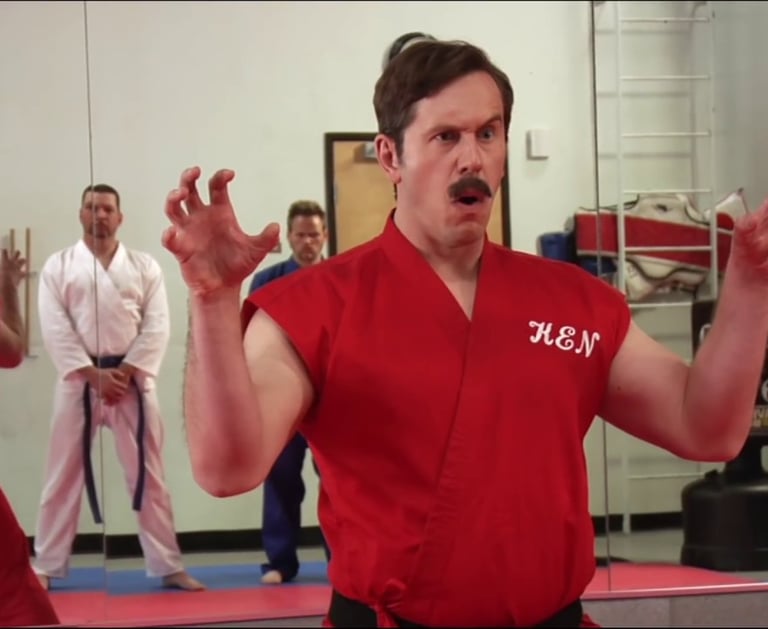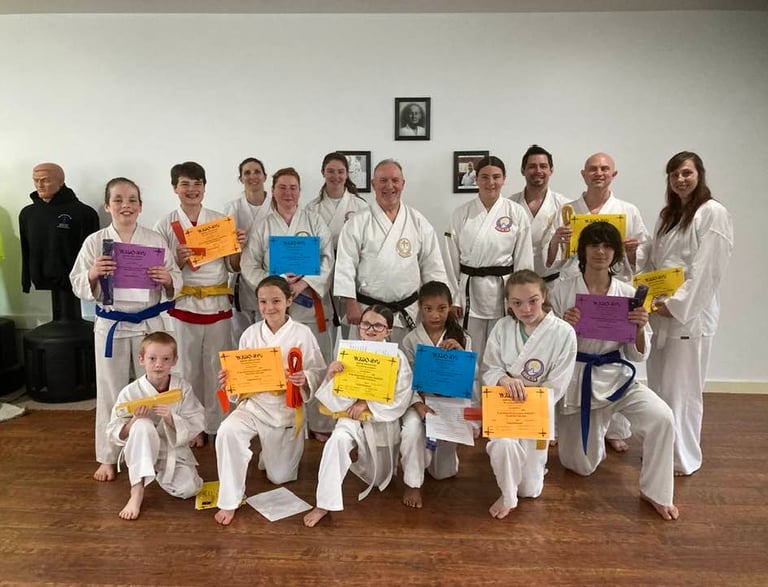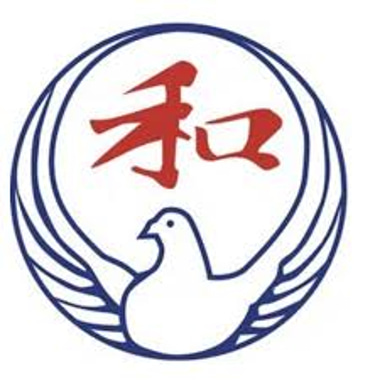Common Myths & Misconceptions About Karate
Karate is one of the most widely recognized martial arts, but many misconceptions surround it. Whether due to movies, television, or misunderstandings about traditional training, these myths often prevent people from exploring karate’s true value.


Karate is one of the most widely recognized martial arts, but many misconceptions surround it. Whether due to movies, television, or misunderstandings about traditional training, these myths often prevent people from exploring karate’s true value. At Wado-Ryu Martial Arts Studio, we believe in setting the record straight and showing what karate is—and what it isn’t.
Myth #1: "Karate is only for kids."
While many children start karate at a young age, the founder of our style, Sensei Hironori Otsuka, began training at the age of 5 for example, adults benefit just as much—if not more—from karate. It offers a full-body workout, stress relief, and mental discipline. Knowing that you can defend yourself or if you have a family, defend them, in case of an attack is empowering. We have had students in their 70s and Sensei Dunkelberger is in his late sixties, proving that karate is for any age.
Myth #2: "Karate is outdated for self-defense."
Some believe karate is an old-fashioned fighting style with no real-world application. In reality, Wado-Ryu’s focus on movement, redirection, and efficiency makes it highly effective in self-defense. The principles of tai sabaki (body movement) allow practitioners to avoid direct confrontation while positioning themselves for counterattacks. Unlike techniques based solely on strength or speed, Wado-Ryu’s strategic approach to self-defense is practical, adaptable, and applicable in real-world situations.
Myth #3: "You need to be in shape to start."
A common hesitation for beginners is the belief that they need to be fit before starting karate. In truth, karate itself builds strength, endurance, and flexibility over time. Classes are structured to allow students to progress at their own pace, making it accessible for all fitness levels. Whether you’re an athlete or haven’t worked out in years, karate meets you where you are and helps you improve step by step.
Myth #4: "Earning a black belt means mastery."
A black belt is an achievement, but it is not the end of the journey—it’s a new beginning. In traditional martial arts, a black belt signifies a deep understanding of the basics and readiness for more advanced learning. True mastery comes with years of continued practice, refining techniques, and deepening one’s knowledge of the art. Karate is a lifelong pursuit, where each milestone opens new doors for growth and self-improvement.
Myth #5: "Karate is all about fighting."
While many of our students look forward to “sparring night,” it is a growing opportunity for others. We work with those students to overcome their anxiety about sparring working towards them becoming competent in a combat situation.
Many of our students gravitate towards kata over sparring. Kata is a critical part of our style and we emphasize kata as much if not more than sparring.
In the end, karate teaches self-defense not unnecessary fighting.
Myth #6: "Karate is the same as other martial arts."
While many martial arts share common principles, each style is unique. Wado-Ryu Karate, for example, incorporates elements of traditional Jujutsu, emphasizing movement and technique over brute force. Unlike some martial arts that focus primarily on grappling, Wado-Ryu blends self-defense, strategy, and adaptability, making it distinct in its approach.
Myth #7: "Karate is only for competition."
Although karate tournaments and competitions exist, traditional karate is not sport-oriented. At Wado-Ryu Martial Arts Studio, we focus on mastering technique and kata, self-improvement, self-defense, and personal development rather than just competition.
Many of our students participate in a spring or fall tournament held by Ganster Karate in Reading. Each year, we travel to Tennessee to participate in the national Wado-Ryu tournament. We make students aware of other tournaments throughout the year, and students are welcome to participate in any tournament with Sensei’s permission.
Myth #8: "Kids who do karate become violent."
This is one of the biggest misconceptions about martial arts. Karate actually teaches students respect, self-discipline, and emotional control. Rather than encouraging aggression, it provides an outlet for energy and frustration while reinforcing non-violent conflict resolution skills. Children who train in karate are often more disciplined and less likely to engage in aggressive behavior outside the dojo.
Conclusion
Karate is not just for kids, not just for the fit, and certainly not just a relic of the past. It’s a dynamic, practical, and rewarding discipline that offers benefits for anyone willing to step onto the mat and train. By breaking down these misconceptions, we invite more people to experience the true essence of karate—one of discipline, respect, self-improvement, and practical self-defense.
If you've ever been curious about karate but hesitated because of these myths, we encourage you to visit Wado-Ryu Martial Arts Studio and experience firsthand what traditional karate is truly about.
Start Your Martial Arts Journey
Send Sensei a message today!


